Resources
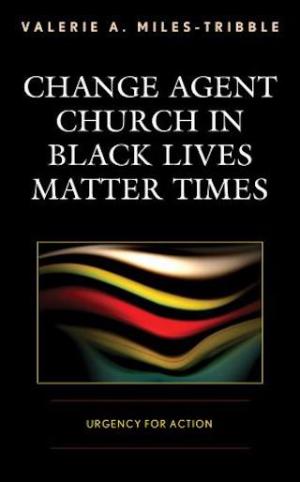
Volatile social dissonance in America’s urban landscape is the backdrop as Valerie A. Miles-Tribble examines tensions in ecclesiology and public theology, focusing on theoethical dilemmas that complicate churches’ public justice witness as prophetic change agents. She attributes churches’ reticence to confront unjust disparities to conflicting views, for example, of Black Lives Matter protests as “mere politics,” and disparities in leader and congregant preparation for public justice roles. As a practical theologian with experience in organizational leadership, Miles-Tribble applies adaptive change theory, public justice theory, and a womanist communitarian perspective, engaging Emilie Townes’s construct of cultural evil as she presents a model of social reform activism re-envisioned as public discipleship. She contends that urban churches are urgently needed to embrace active prophetic roles and thus increase public justice witness. “Black Lives Matter times” compel churches to connect faith with public roles as spiritual catalysts of change. (From the Publisher)
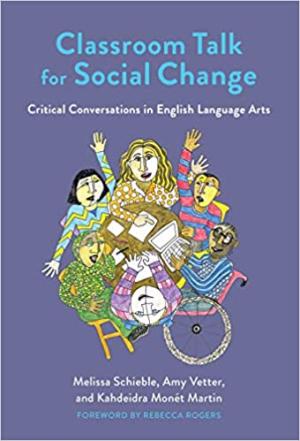
Learn how to foster critical conversations in English language arts classrooms. This guide encourages teachers to engage students in noticing and discussing harmful discourses about race, gender, and other identities. The authors take readers through a framework that includes knowledge about power, a critical learner stance, critical pedagogies, critical talk moves, and vulnerability. The text features in-depth classroom examples from six secondary English language arts classrooms. Each chapter offers specific ways in which teachers can begin and sustain critical conversations with their students, including the creation of teacher inquiry groups that use transcript analysis as a learning tool. (From the Publisher)
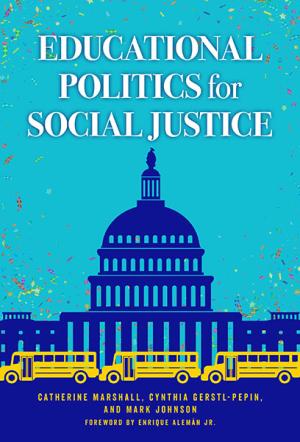
Employing a social justice framework, this book provides educational leaders and practitioners with tools and strategies for grappling with the political fray of education politics. The framework offers ways to critique, challenge, and alter social, cultural, and political patterns in organizations and systems that perpetuate inequities. The authors focus on the processes through which educational politics is enacted, illustrating how inequitable power relations are embedded in our democratic systems. Readers will explore education politics at five focal points of power (micro, local/district, state, federal, and global). The text provides examples of how to “work the system” in ways that move toward greater justice and equity in schools. (From the Publisher)
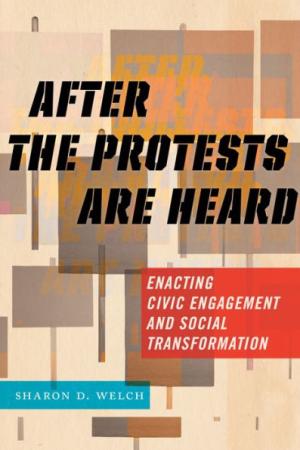
From the Women’s March in D.C. to #BlackLivesMatter rallies across the country, there has been a rising wave of protests and social activism. These events have been an important part of the battle to combat racism, authoritarianism, and xenophobia in Trump’s America. However, the struggle for social justice continues long after the posters and megaphones have been packed away. After the protests are heard, how can we continue to work toward lasting change? This book is an invaluable resource for anyone invested in the fight for social justice. Welch highlights examples of social justice work accomplished at the institutional level. From the worlds of social enterprise, impact investing, and sustainable business, After the Protests Are Heard describes the work being done to promote responsible business practices and healthy, cooperative communities. The book also illuminates how colleges and universities educate students to strive toward social justice on campuses across the country, such as the Engaged Scholarship movement, which fosters interactions between faculty and students and local and global communities. In each of these instances, activists work from within institutions to transform practices and structures to foster justice and equality. After the Protests Are Heard confronts the difficult reality that social change is often followed by spikes in violence and authoritarianism. It offers important insights into how the nation might more fully acknowledge the brutal costs of racism and the historical drivers of racial injustice, and how people of all races can contain such violence in the present and prevent its resurgence in the future. For many members of the social justice community, the real work begins when the protests end. After the Protests Are Heard is a must-read for everyone interested in social justice and activism – from the barricades and campuses to the breakrooms and cubicles. (From the Publisher)
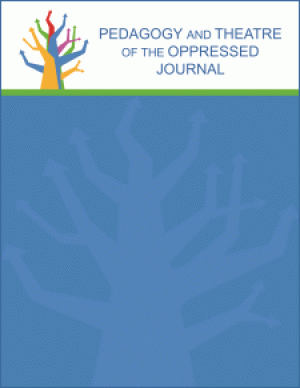
An annual open-access, peer-reviewed journal presenting research papers, literary essays, manifestos, production and book reviews, photo essays and videos, community-based voices and actions, and other hybrid projects that address popular education and liberatory theatre, produced by Pedagogy and Theatre of the Oppressed, Inc. (http://ptoweb.org/)

